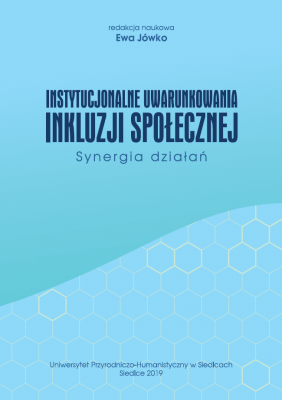Inclusion of a child with cerebral palsy in the process of social functioning in the peer group
Synopsis
The aim of the article is to present the theoretical and practical assumptions regarding inclusion education in the context of education of students with cerebral palsy. The first part of the article presents the basic assumptions of the concept of inclusive education, including the assumptions of inclusion diagnostics, strategies and methods used in inclusive groups, and assumptions about the competence of teachers and support for them in relation to the ability to include students with disabilities in the educational and didactic process. The next part of the article presents a short report on the inclusion of students with disabilities in the educational process in mainstream and integration institutions, and describes the scope of educational activities in the process of including a child with cerebral palsy at the level of schooling.
Downloads
Published
License

This work is licensed under a Creative Commons Attribution-NonCommercial 4.0 International License.





